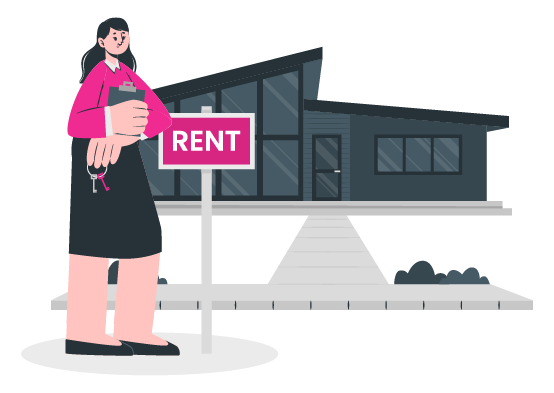Navigating the Irish rental market can be overwhelming, especially for those facing financial difficulties or uncertain employment. This is where the Housing Assistance Payment (HAP) becomes a vital support system. Designed to help individuals and families with long-term housing needs, HAP is one of the key tools the Irish government uses to make private rental accommodation more accessible and affordable.
In this article, we will explain how HAP works in Ireland, who qualifies, what the process looks like, and why it is a crucial part of Ireland’s housing strategy. Whether you are a tenant or a landlord, understanding the HAP scheme eligibility in Ireland can open the door to more stable housing arrangements.
What is the Housing Assistance Payment (HAP)
The Housing Assistance Payment (HAP) is a government housing support programme administered by local authorities across Ireland. It is intended for individuals and families with a long-term housing need who are eligible for social housing support. Under the scheme, the local authority pays part or all of the rent directly to the landlord, while the tenant pays a contribution to the local authority based on their income.
What makes HAP different from older schemes like Rent Supplement is that it allows recipients to take up full-time employment without losing their housing support. This flexibility helps people transition into more stable financial situations while still maintaining access to affordable housing.
How HAP Works in Ireland
Understanding how HAP works in Ireland starts with recognising the collaboration between tenants, landlords and local authorities. Here is a step-by-step look at how the process typically unfolds
1. Eligibility and Application
The first step is to apply for social housing support through your local authority. If you are approved, you may then be eligible for HAP. This is where HAP scheme eligibility in Ireland becomes important. You must have a long-term housing need and meet income criteria set by the local council.
2. Finding Suitable Accommodation
Unlike some housing schemes, HAP allows tenants to find their own private rental accommodation, as long as the rent is within the maximum limits set by the local authority. The property must meet minimum standards for rental housing.
3. HAP Payment Structure
Once a suitable property is secured, the local authority enters into a direct payment agreement with the landlord. The authority pays a set portion of the rent, while the tenant pays the remainder to the council as their personal contribution. This amount is based on income and household composition.
4. Ongoing Requirements
Tenants must keep their payments to the local authority up to date and inform the council of any changes in circumstances. The property may also be subject to inspections to ensure it remains in good condition and complies with housing standards.
Who is Eligible for the HAP Scheme
HAP scheme eligibility in Ireland is determined by the applicant’s housing need, income and family status. You may qualify for the Housing Assistance Payment if
- You have been assessed by your local authority as having a long-term housing need
- You are on the local authority’s housing waiting list
- Your income falls within the income limits for your area and family size
- You are aged 18 or over and are legally residing in the State
It is important to note that HAP is not intended for short-term or emergency housing. It is designed to provide long-term rental support for people who need stable accommodation and are eligible for social housing.
Benefits of the Housing Assistance Payment (HAP)
The Housing Assistance Payment Ireland offers a number of benefits for both tenants and landlords
For Tenants
- Ability to take up full-time employment without affecting support
- Greater choice of private rental accommodation
- Security of knowing rent is managed through the council
- Income-based rent contribution ensures affordability
For Landlords
- Rent is paid directly by the local authority, reducing risk of arrears
- Tenancies operate under the Residential Tenancies Act, providing legal clarity
- No involvement in income assessments or eligibility checks
This structure creates a more stable rental environment for both parties, helping to maintain longer tenancies and better housing outcomes.
HAP vs Other Housing Schemes
There are several housing support schemes available in Ireland, so it helps to understand how HAP compares
HAP vs Rent Supplement
Rent Supplement is typically for people in short-term financial difficulty and is not available to those in full-time work. HAP, on the other hand, allows recipients to work full-time and still receive support, making it more suitable for long-term housing stability.
HAP vs RAS (Rental Accommodation Scheme)
RAS involves a direct agreement between the landlord and the local authority, and tenants often have less flexibility. HAP allows tenants to find their own accommodation, offering more independence and choice.
HAP vs Social Housing
Social housing is provided directly by the State or housing bodies, often with very long-term leases. HAP gives tenants the ability to live in the private rental sector while still receiving support, which can result in faster housing placement.
Common Challenges with HAP
While the Housing Assistance Payment Ireland offers numerous advantages, there are also a few challenges worth considering
- Rent limits may be too low for some urban areas, making it harder to find suitable accommodation
- Some landlords are reluctant to accept HAP tenants, despite legal protections against discrimination
- There can be administrative delays in setting up payments, especially in areas with high demand
- Properties must meet minimum standards, which can exclude some lower-cost rentals
Despite these challenges, the majority of tenants report positive experiences once the system is in place and functioning properly.
How to Apply for HAP
Applying for HAP is a straightforward process once you are approved for social housing support. Here is what to do
- Contact your local authority and apply for housing support
- Once approved, begin searching for a rental property that falls within your local rent limits
- Agree the tenancy with a landlord who is willing to accept HAP
- Submit a completed HAP application form to the local authority
- Await confirmation of approval and payment arrangements
The local authority will take care of contacting the landlord and arranging payment. Tenants are usually responsible for paying a deposit and the first month’s rent upfront.
Final Thoughts

The Housing Assistance Payment (HAP) is a flexible and supportive scheme that helps thousands of individuals and families across Ireland access long-term, secure housing in the private rental market. By allowing tenants to work full-time and choose their accommodation, HAP balances independence with support. Knowing how HAP works in Ireland and whether you meet the HAP scheme eligibility Ireland requires can make all the difference in securing a home that works for your life and budget.
Looking for rental listings that fit HAP criteria or need expert help navigating the housing process
Visit FindQo.ie today to explore rental options and connect with agents who understand the HAP system.

